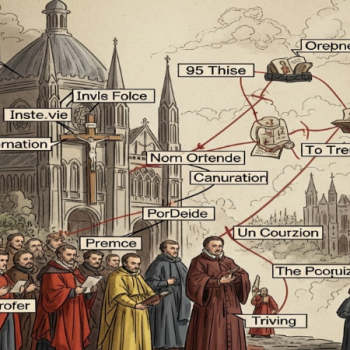
As Catholics, we are to walk in the spirit, not the flesh (Galatians 5:16-26). This concept reflects the inherent duality of the human person, which comprises both a physical body and a spiritual soul. In this essay, I will explore spiritual theology, a branch of theology that emphasizes living in the spirit rather than living in the flesh.
Spiritual Theology
Theology qua theology is the science of studying God. Spiritual theology may be defined as that aspect of theology that, proceeding from the truths of divine revelation and the religious experience of individual persons, establishes the nature of the supernatural life.
Spiritual theology, therefore, examines the stages of the Holy Spirit’s work within the depths of the human being. In a sense, spiritual theology may be said to differ from theology in three respects: light, object, and angle.
The light used in theology is the general light of faith. However, the light used in spiritual theology goes from the first stages of the supernatural action of the Holy Spirit to its fullness.
The object considered in theology is revelation, or, more accurately, the contents of revelation. In comparison, the object in spiritual theology is the transformations that occur in the soul and spirit under the different modes of action of the Holy Spirit. Finally, the angle or understanding of the spiritual journey, along with the necessary discernment that accompanies it, are among the most critical and challenging aspects of spiritual theology.
It is, therefore, necessary to formulate directives for the individual’s growth and development, while simultaneously explaining the process by which souls advance from the beginning of their spiritual life to complete perfection. How can this be accomplished?
According to spiritual theology, in order to attain “perfection” in the Christian life, one must practice vocal prayer, contemplative prayer, and meditation. Additionally, one must avoid sin and be dedicated to serving God. From the Catholic perspective, this involves sacraments such as confession and the Eucharist.
Ultimately, this process of perfection entails three stages and draws heavily from the work of Saint John of the Cross and Saint Teresa of Avila.
The Dark Night Of The Soul
In his seminal poem, Saint John of the Cross outlines three stages that a soul experiences as it seeks to draw closer to union with God. It is worth noting that these three stages are not always or necessarily linear.
The first stage of development involves cleansing the soul of any obstacles that impede its spiritual growth. For this reason, it is referred to as the purgative way. At this level, the individual is tasked with rejecting all vices, attachments, and worldly desires that prevent the soul from ascending to God. This stage can be likened to purging a log of any moisture to prepare it for burning. As indicated above, this stage also involves actively seeking to know God through prayer and meditation.
The second stage is called the illuminative way. The name of this stage is somewhat ironic, considering that it is here that the soul experiences a more profound purification, often involving a “dark night” experience where the soul feels a sense of dryness and a withdrawal of God’s presence. Nevertheless, it is at this stage that one becomes increasingly enlightened and aware of spiritual matters and virtues. The individual progresses in contemplation, gaining a clearer understanding of God’s will. The mind becomes more focused on God, and the soul begins to develop a more profound relationship with the Divine.
Although it is considered a passive purification, it is at this point that God leads the soul through trials and temptations to strengthen it in virtue and prepare it for a deeper union. Despite the tribulations that one endures, it is here that God’s grace increasingly enlightens the soul, allowing the soul to grow in contemplation.
The third and final stage is a spiritual marriage, referred to as the unitive way. In this last step, the soul completes its transformation and is united with God. Here, the individual begins to experience a deep and abiding love and peace as the soul experiences a profound union with God. A selfless love for God and others characterizes this stage. Moreover, the soul experiences a more constant awareness of God’s presence and a habitual disposition of conformity to God’s will.
In all of this, one sees a sense of mysticism in spiritual theology.
Spiritual Theology And The Mystic
Without question, there are elements of spiritual theology and mysticism that overlap. To distinguish between the two disciplines, it is beneficial to examine them under three aspects: scope, approach, and emphasis.
For the most part, spiritual theology is a broader subject that encompasses the entire process of spiritual growth and development within a theological framework. Mysticism is more specific, focusing on the direct, experiential encounter with the Divine.
Different, too, are the approaches each takes.
Spiritual theology involves study, reflection, and the application of various doctrines and practices that nurture the spiritual life. Mysticism accentuates personal experience, intuition, and practices designed to transcend ordinary consciousness, thereby achieving a direct connection with the Divine.
Finally, spiritual theology and mysticism differ in their focus. Spiritual theology may emphasize understanding the nature of God and how one relates to Him, while mysticism often focuses on the transformative potential of the direct experience with God.
Conclusion
If general theology is the science and study of God, then spiritual theology may be defined as the science of mastering the spiritual life.
Like all living things, human beings are composed of body and soul. Modern society tends to heavily emphasize the body or material aspects of life to the exclusion of the spiritual. To some extent, spiritual theology seeks to rectify this imbalance.












